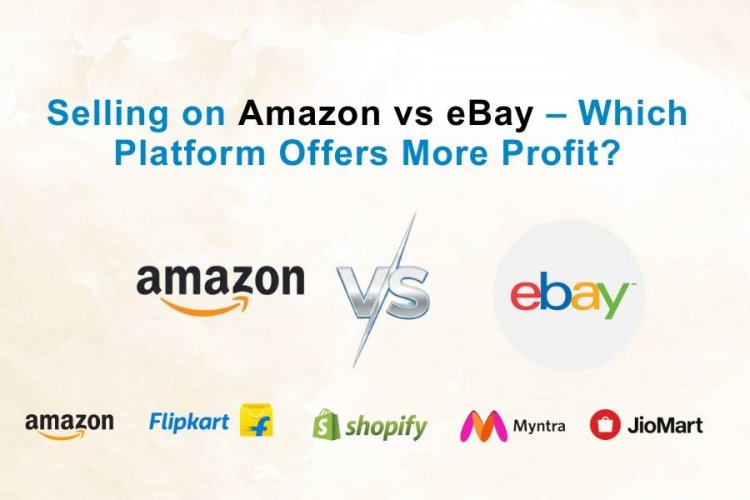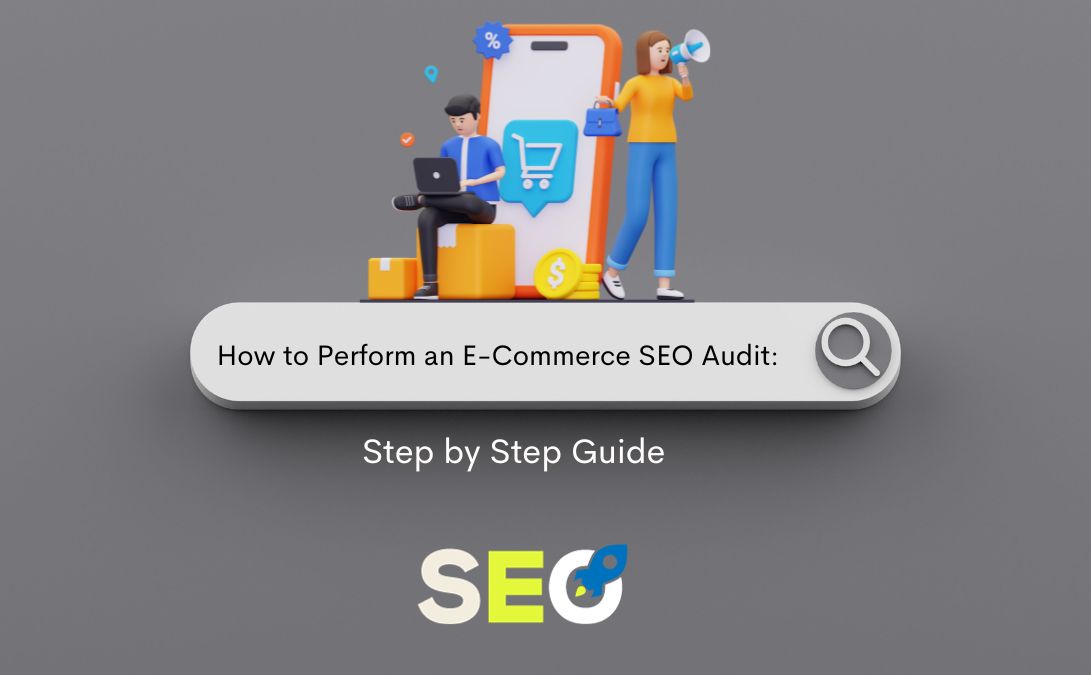Selling on Amazon vs eBay – Which Platform Offers More Profit?

When it comes to online selling, Amazon and eBay are two of the biggest marketplaces in the world. Both platforms offer millions of customers, easy listing tools, and global reach. However, choosing where to sell—and which offers more profit—can be challenging, especially for new sellers. To make an informed decision, you need to understand each platform’s structure, fees, audience, and growth potential. If you’re using eCommerce management services, the right platform can significantly affect your profitability and business success. In this guide, we’ll compare Amazon vs eBay in terms of fees, competition, fulfillment and customer experience—so you can decide which platform delivers better profits for your business.
Selling on Amazon vs eBay
Find out which platform offers more profit for sellers - Amazon vs eBay. Explore the benefits of each platform to make an informed decision for your e-commerce business.
Marketplace Overview: Amazon vs eBay
Amazon
Amazon dominates global eCommerce with over 300 million active customers. It focuses on product-based listings, meaning multiple sellers can list the same product under one detail page. Amazon is known for trust, fast shipping, and an advanced logistics network (Fulfillment by Amazon or FBA).
eBay
eBay started as an auction platform but has evolved into a fixed-price marketplace. It’s ideal for both new and used goods, collectibles, and niche items. Sellers have more control over listings, pricing, and presentation. However, eBay doesn’t offer fulfillment services like Amazon FBA, which can make logistics more challenging.
Verdict:
Amazon provides structure and scalability, while eBay offers flexibility and independence. The more your eCommerce management team optimizes your listings, the better your results—on either platform.
2. Selling Fees and Costs
Fees directly affect profit margins, so understanding them is crucial.
Amazon Fees
Amazon charges:
-
A referral fee (usually 8–15% per sale depending on the category)
-
FBA fees for storage, packaging, and shipping
-
A monthly professional seller subscription fee
While Amazon’s fees can seem high, the Prime delivery benefits and visibility often justify the costs—especially when using professional Amazon account management services to optimize operations.
eBay Fees
eBay’s structure includes:
-
Insertion fees (for listing items)
-
Final value fees (10–12% of sale price)
-
Optional Promoted Listing fees for ads
eBay’s lower overhead can appeal to small sellers, but visibility may require paid promotions.
Verdict:
eBay can be cheaper for small-scale sellers. However, Amazon often generates higher sales volume, which can result in more overall profit—despite higher fees.
3. Customer Trust and Buyer Behavior
Amazon customers typically expect speed, reliability, and brand consistency. That’s why Amazon sellers often see higher conversion rates—customers trust Amazon’s delivery and return policies.
On eBay, customers look for unique items, deals, or used products. eBay buyers are often more price-sensitive and comparison-driven.
Verdict:
If your eCommerce management team specializes in branding and optimizing listings, Amazon provides stronger long-term profit potential. But if you sell vintage or secondhand items, eBay may be your best match.
4. Fulfillment and Logistics
Amazon FBA (Fulfillment by Amazon)
Amazon FBA allows sellers to store products in Amazon’s warehouses. Amazon handles picking, packing, shipping, and customer service. This saves time and increases eligibility for Prime—boosting sales potential.
eBay Fulfillment
eBay lacks an internal fulfillment service like FBA. Sellers handle shipping independently or through third-party logistics (3PL) partners. This flexibility can be good for experienced sellers but challenging for beginners.
Verdict:
Amazon’s fulfillment network adds convenience and boosts trust, making it ideal for sellers using account management services that integrate Amazon inventory and logistics.
5. Competition and Branding
Amazon’s marketplace is competitive, especially in popular product categories. Thousands of sellers often list the same product. This can lead to price wars unless you build a strong brand presence.
eBay allows more individuality. Each listing can include personalized photos, descriptions, and store branding, which helps eBay sellers stand out.
Verdict:
If your eCommerce management team focuses on brand differentiation, eBay may offer better creative control. If you prioritize high-volume sales, Amazon’s marketplace visibility wins.
6. Marketing and Visibility
Amazon sellers can use Sponsored Products and Brand Stores to advertise within the platform. With expert Amazon account management, your listings can rank higher and convert faster.
eBay offers Promoted Listings and eBay Stores, but the visibility algorithm is less advanced than Amazon’s A9 system.
Verdict:
Amazon offers better marketing tools and analytics for growth-focused sellers, while eBay provides simpler options for budget-conscious businesses.
7. Profit Potential: Which Platform Wins?
The ultimate question—Which platform is more profitable?
The answer depends on your business model:
-
Amazon is better for branded products, high-volume sellers, and those using eCommerce account management services to scale operations.
-
eBay suits individual sellers, niche products, and cost-conscious businesses with smaller inventories.
With professional account management, sellers on either platform can maximize ROI. However, Amazon generally offers higher earning potential due to customer trust, FBA logistics, and brand exposure.
Final Thoughts
When comparing selling on Amazon vs eBay, both platforms offer unique advantages. eBay gives you flexibility, while Amazon delivers scalability and speed.
If you’re serious about long-term profit, combining either platform with eCommerce account management services can make all the difference. Novel Web Solution is trusted eCommerce Solution team. These experts teams handle product optimization, inventory, advertising, and customer support—allowing you to focus on growing your business.
Ultimately, your success depends on your products, pricing strategy, and commitment to compliance. Whether you choose Amazon or eBay, investing in professional account management ensures you get the most out of every sale.






